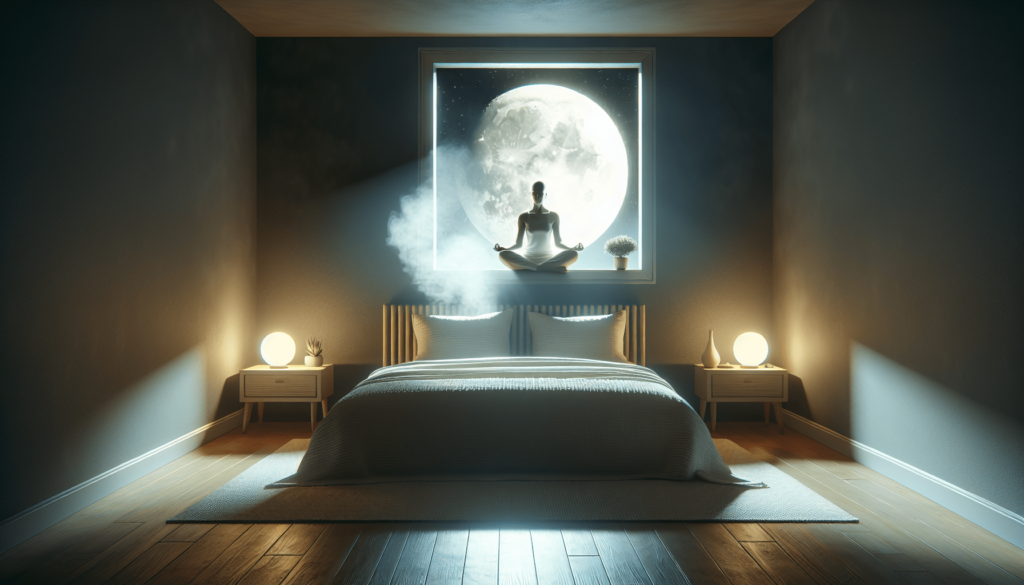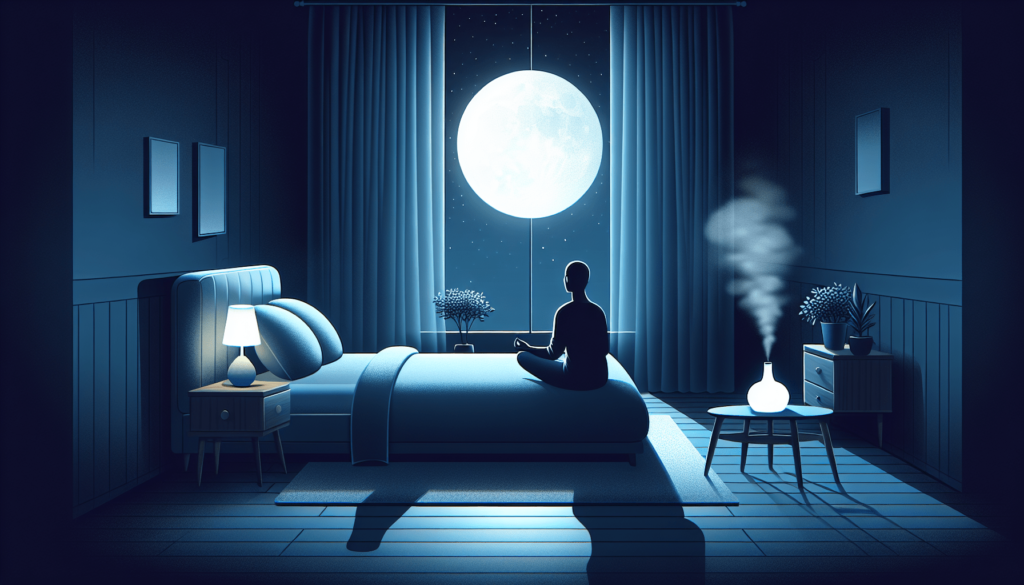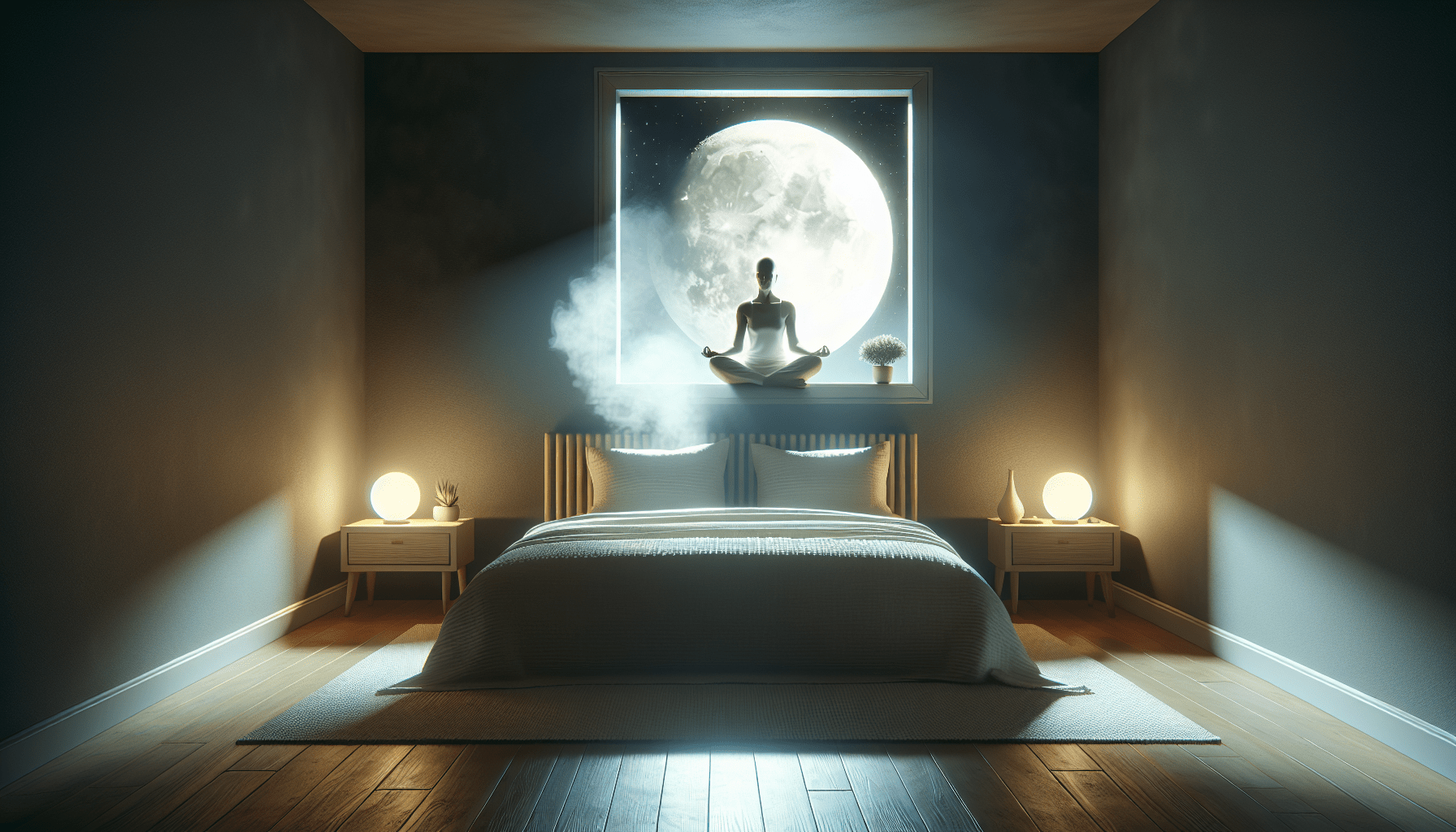Do you ever find yourself staring at the ceiling, desperately trying to count sheep but ending up with a mental sheep traffic jam instead? Or perhaps you’ve considered naming all the constellations just to pass the time during one of those frustrating insomnia-ridden nights? Insomnia, I mean, it sounds like the cool cousin of narcolepsy—mysterious, kind of exotic—but in reality, it’s like being stuck at a party you weren’t even invited to. Enter meditation, the ancient practice that promises restful slumber without the need for counting anything, not even on your fingers. So, let me take you on a journey where gurus wear pajamas and mantras are whispered like sweet lullabies.
What is Meditation?
Meditation is like playing hide and seek with your own thoughts—except you’re it, and hiding has never been more relaxing. Instead of seeking quiet and peace at a yurt in Tibet, you can access that zen-like tranquility from your living room couch or even your bed (just don’t forget the comfy pajamas). It’s about focusing, breathing, and possibly even learning to ignore the annoying buzz of your overactive brain—that’s right, no counting sheep required.
A Brief History of Meditation
Meditation dates back to…well, probably the time when humans first had enough brain capacity to wonder why they had brains in the first place. Ancient civilizations across the globe have practiced various forms of meditation. From the Buddha sitting under a tree to monks watching their breath as if it was a suspense thriller—the kind where you swear, the protagonist isn’t breathing either—meditation has taken many forms, all aimed at inner peace.
The Sleep-Deprived Society
Let’s face it: we’re living in a society where getting eight hours of sleep is considered as mythical as the Loch Ness Monster. Night owls sing their nocturnal songs of Netflix binging and internet surfing until the caffeine kicks in the next morning. But fear not! There’s a solution that doesn’t involve investing in blackout curtains or consuming enough warm milk to give cows a well-deserved vacation.
Why is Sleep Important?
Sleep is like the ultimate supervisor of your body. It’s in charge of cell regeneration, memory consolidation, and generally making sure you don’t fall asleep during important meetings. Without proper sleep, you would end up walking into walls or, heaven forbid, agreeing to go on a second date with someone just because you’re too tired to think straight. Sleep is your body’s way of recharging—which is just fancy talk for ensuring you don’t resemble a grumpy, sleep-deprived zombie.
Common Causes of Sleep Disorders
Why are we sleepless in Seattle (or any other city for that matter)? Anxiety, stress, a snoring dog, or even the existential dread of tomorrow’s work presentation can all lead to sleepless nights. Toss in the blue light from electronic screens and a penchant for late-night snacks, and it’s a recipe for insomnia à la carte. Stress not only takes a toll on your mind but also plays chicken with your body’s ability to relax.

Meditation: Your New Sleep BFF
Meditation meets sleep deprivation like chocolate meets peanut butter—a perfect combo that might just save your sanity (and those poor sheep you’ve been counting on for years).
Benefits of Meditation for Sleep
Meditation acts like a tranquilizer for your thoughts, effectively turning an overpacked mental suitcase into a neatly organized carry-on. It helps decrease stress, improve emotional regulation (meaning you won’t cry when your toast burns), and enhances your overall sense of wellbeing. Studies have shown meditation can lower cortisol levels, which means stress takes a backseat, and sleep can drive into the sunset of your dreams.
Types of Meditation for Better Sleep
-
Mindfulness Meditation: Embrace the art of focusing on the present without judging the fact that your feet are cold or your neighbors have decided to tap dance in clogs. Focusing on the breath, the sounds around you, or even the sensation of lying down—without wondering if you left the stove on—can help prepare your mind for snoozing.
-
Guided Meditation: Let someone else do the talking while you do the relaxing. It might involve listening to a soothing voice steering you through a lush forest or counting backward from a hundred…in French. Guided meditation recordings can help drown out your usual bedtime playlist of worries.
-
Body Scan Meditation: Mentally travel from your toes to your head, ideally without boarding fees. It involves consciously relaxing each part of your body, which is like treating yourself to a mental spa—no fluffy robe required.
-
Loving-kindness Meditation: If you’re brave enough, you might even extend this to your next-door neighbors, who seem to host their own version of Iron Chef at midnight. This warm fuzzy kind of meditation invites you to feel and project love, empathy, and compassion—a sure way to release tension and embrace a peaceful bedtime.
Tips to Get Started with Sleep Meditation
Now let’s navigate the path to restful nights and rejuvenating sleep, sprinkled with a hint of humor, because why not laugh yourself to bed?
Setting the Bedtime Stage
-
Create a Relaxing Environment: Channel your inner interior decorator and transform your room into a haven. Dim the lights, make sure the mattress doesn’t make sounds akin to a haunted house, and enforce a technology timeout—yes, that includes all cat memes.
-
Wind Down Before Bed: Consider sipping calming herbal tea, reading a book—preferably not a spy novel that ends on a cliffhanger—or taking a warm bath, though potentially sounding like cereal isn’t necessary. Build a routine that informs your body that bedtime is approaching faster than rush-hour traffic.
-
Consistency is Key: Just like your quirky yoga instructor always says—consistency! Try to meditate every night at the same time. Your body thrives on routines, much like sitcom reruns and your Aunt Edna’s Christmas letters.
-
Avoid Stimulants and Late Night Tap Dancing: Okay, maybe not the latter, but for goodness’ sake, cut out caffeine and try not to indulge in intense activities right before bed. Sweating over a thriller novel or engaging in profound philosophical debates might want to be scheduled for earlier parts of the day.

What to Expect When Meditating for Sleep
Embarking on a meditation journey isn’t like flipping a light switch; it’s more akin to dimming it. It requires patience, dedication, and occasionally a gentle reminder to avoid frustrations when you realize you’re thinking about dinner tomorrow instead of relaxing.
Common Challenges and How to Overcome Them
-
Restless Thoughts: Much like any pet, your mind might wander, scratch at the door, or demand snacks late at night. When it does, gently guide it back to your breath or meditation focus.
-
Falling Asleep Mid-Meditation: Surprisingly, this is not the worst-case scenario—it’s kind of the goal! Just try not to slump over like a deflated balloon. Find that balance between relaxed yet comfortably supported.
-
Inconsistent Routine: Treat it like brushing your teeth, but for the mind. Sometimes you’ll forget, but getting back to it the next day ensures your mental hygiene is back on track.
The Glow-Up: Changes You May Notice
You might notice you’re waking up refreshed, able to negotiate better with that one coworker who refuses to reply-all. Stressful situations become less ant-filled, and you begin to feel like you’re recapturing those glorious teenage days of sleeping until noon (without the hormonal rebellion).
Meditation and Sleep: The Science Behind the Giggles
No, it’s not sorcery; even science backs meditation’s cloak of mystery, revealing it to be a wizard of calmness and sleep.
Mindful Research: How Meditation Affects Sleep
Research has shown that meditation stimulates the parasympathetic nervous system, lovingly known as the “rest and digest” system to those who nod along in biology class. By reducing cortisol levels (stress hormones) and boosting melatonin (a hormone that helps regulate sleep), meditation acts as the perfect wingman, introducing you to dreamland—minus the awkward small talk.
The Long and Restful Road Ahead
Incorporating meditation into your bedtime routine might feel like finding a treasure map with directions in Swahili, but once you get the hang of it, those ‘X marks the spot’ nights of sleep can become a norm. Sleep is a vital part of your life; it fuels creativity, decision-making skills, and ensures that your inner-everything doesn’t malfunction.
Ultimately, meditation can help unlock a rested, joyful version of yourself that awaits at the end of bedtime’s rainbow. Imagine bidding farewell to sleepless nights and achieving a newfound zen demeanor that would make even a statue envious. Perhaps, the sheep you once counted might just thank you for the retirement.
So, here’s to the serene nighttime adventures and bidding adieu to the insomniac’s chaos—it’s time to meet your sandman armed with mantras, storytelling, and possibly a warm chamomile tea. Isn’t it blissful to realize that all you need to invite peace and quiet is a little focus, a touch of patience, and accepting that life’s too short to be sleepless in your very own bed?
Note: While meditation can be incredibly beneficial, it’s important to realize that severe sleep disorders might need professional medical attention. Trust in both ancient relaxation techniques and modern medicine—after all, they’re both on your side.
Disclaimer: Alas, this article is not responsible for anyone falling asleep at their workstation after inner peace is achieved but gratitude for finally sleeping better can be channeled into anything but coffee spills.
